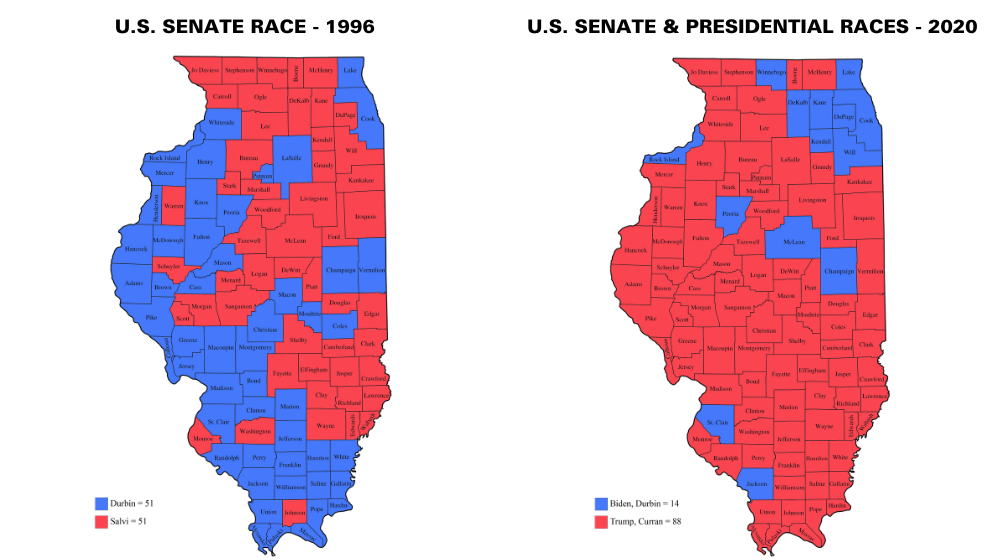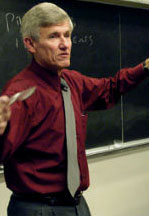
Research from the Paul Simon Public Policy Institute shows the geographic and population shift in Illinois politics from 1996 to 2020.
June 15, 2022
Latest SIU Paul Simon Institute research analyzes 2020 election, provides context for ’22
CARBONDALE, Ill. – Republicans have gained geographical ground in Illinois elections, but at the same time have lost votes in the state’s major population centers, according to the latest research from Southern Illinois University Carbondale’s Paul Simon Public Policy Institute.
“Biden, Trump, Durbin, and Taxes” is the latest paper in the institute’s “Simon Review” series. The paper, authored by institute visiting professor John Jackson and SIU Carbondale political science professor emeritus John Foster, examines Illinois’ 2020 election results, including the presidential election, U.S. Senate race and the referendum on the state’s income tax. Among their findings:
- Illinois’ political parties have undergone a geographical realignment since the 1990s that mirrors a national shift.
- Democrats have given up land and gained population while Republicans have given up population but gained land. The Democrats now have a foothold in vote-rich large cities and most suburbs while Republicans have taken almost all the rural ground and small cities. This pattern is demonstrated in both national and statewide races.
- The counties that vote Democrat tend to be wealthier and younger than those that vote Republican. According to the 2020 census, Republican counties lost population, while the Democratic counties gained population.
- Illinois’ 2020 election results demonstrate the nationalization of elections and campaign messaging.
- The geographical party realignment is a key factor that explains the deep polarization the nation – and the state of Illinois – have experienced in the last three decades.
- The rejection of the proposal to change Illinois’ income tax system to a graduated one demonstrates how campaigns can make a difference: The message from proponents of the graduated tax did not gain traction compared to the case made against it.
The paper may be downloaded here: https://opensiuc.lib.siu.edu/ppi_papers/412022/
Jackson and Foster can provide further insight and analysis into how the research connects to the 2022 election cycle. For comment and analysis, reporters may contact:
 John Jackson
John Jackson
Visiting Professor
Paul Simon Public Policy Institute
Southern Illinois University Carbondale
jsjacson@psppi.siu.edu
618/303-1240
 John Foster
John Foster
Professor Emeritus
Political Science Program
Southern Illinois University Carbondale
jlfoster@siu.edu
618/319-0670
